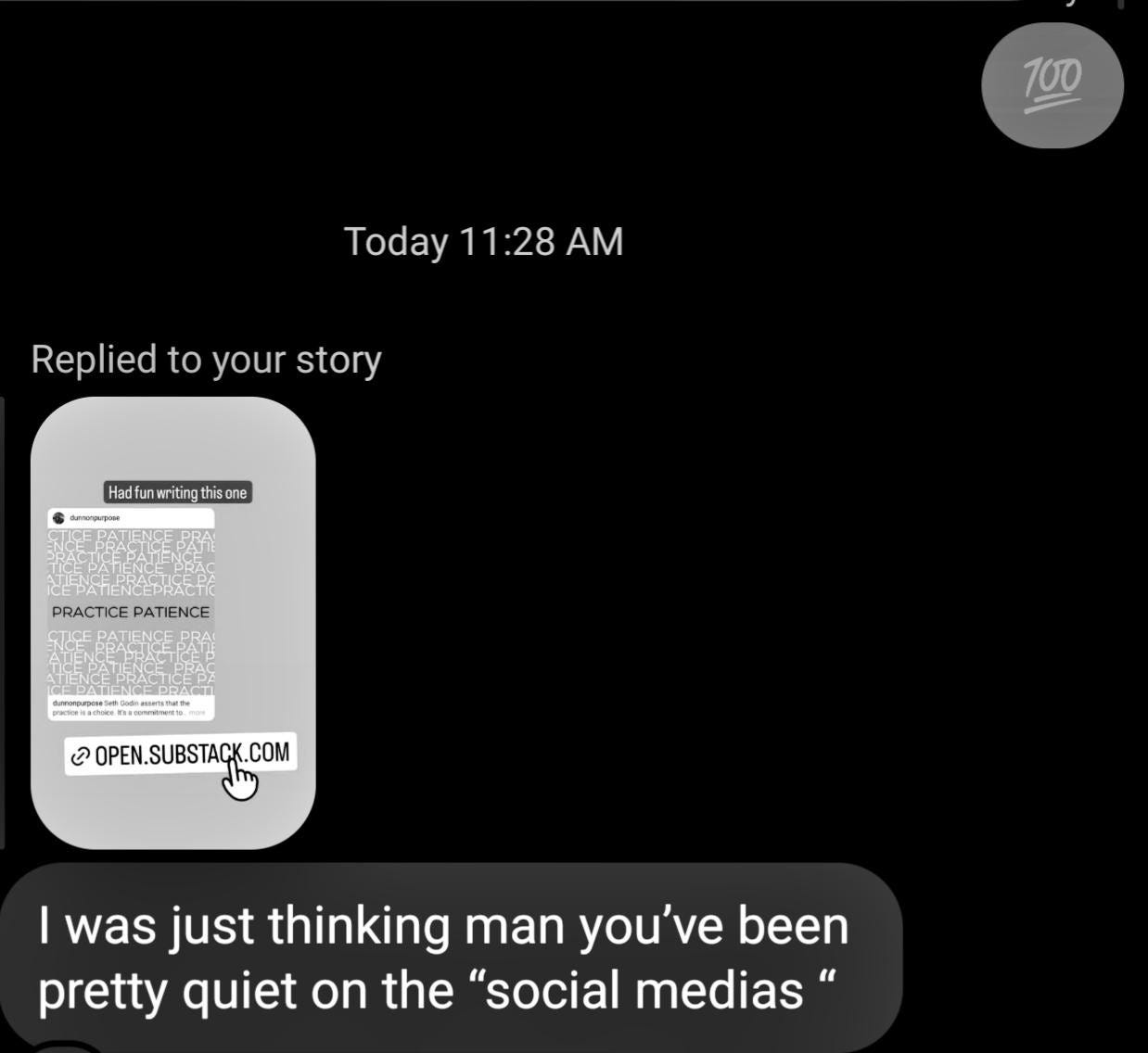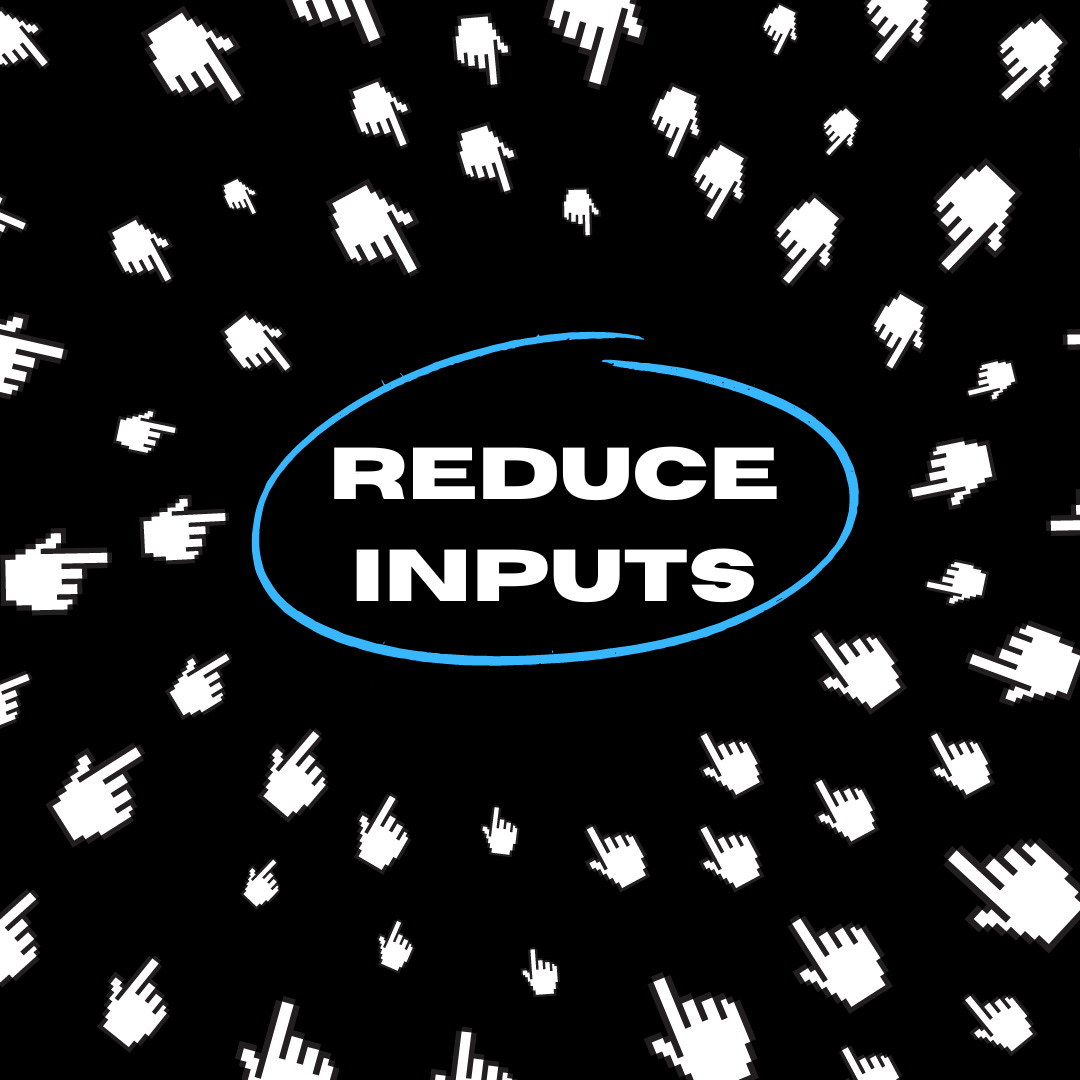6. Reduce Inputs
Expand Life
My friend (and past podcast guest) Daniel Gutierrez responded to my IG story about practicing patience yesterday with this:
I appreciate the fact he pointed it out because 1) it shows he cares 2) it was intentional, and 3) it’s a great intro to this life lesson.
As someone who’s made a career in marketing and content creation, I know and appreciate the opportunity and value social platforms provide. But I also know how addicting and detrimental it can be to our mental well-being.
Keeping up with friends, family, and community events = Excellent!
Allowing corporations to hack our behavior and influence our life with a slot machine of voices from around the world = Dangerous!
I often made the excuse that the amount of time I spent on the various apps was justified because of the nature of my work. But the truth is that a majority of the time spent has nothing to do with work or sharing content I’ve created and more to do with a brain addicted to easy dopamine.
So I decided to stop putting off what I knew would be beneficial and started taking intentional actions toward reducing/removing time on various social platforms and digital media in general.
In the Odyssey, Odysseus ties himself to the mast of his ship and his crew plugs their ears so that the beautiful songs of the sirens do not take them off course and crash their ships on the rocks. When battling digital addiction, we must take a similar approach.
Here are some things that work for me:
Mute all notifications from social apps
Remove social apps from the main screen
Create timers for each app (mine are currently set to 20 minutes a day)
Turn on focus mode (my Android phone has a calendar that locks me out of an app unless I double opt-in and gives me a 5-minute timer until it locks out again)
Turn on bedtime mode (silences phone, dims the screen, and changes the screen to black and white at a specific time)
Uninstall the apps
Just one action helps, but all of them together dramatically reduce screen time, and time on app, and aid with focus throughout the day.
These actions are informed by James Clear’s book, Atomic Habits where he shares the three laws of breaking a bad habit. They are:
1) Make it invisible (off the home screen/off the phone)
2) Make it hard (double opt-in, time-restricted)
3) Make it terrible (black and white is less engaging)
Social media is a fun and useful tool but changing my relationship with it has allowed me to have clearer thought, greater focus, and more conviction. If I didn’t reduce inputs, there’s no way my writing practice would be where it is today.
It’s a much more pleasant world without advertisers singing their siren song in my ear and the voices from all around the world influencing my subconscious. I’ve found I have more presence and mental bandwidth.
I think this quote is an eloquent summary and illustration:
“Thought is the fountain of action, life, and manifestation; make the fountain pure, and all will be pure.” - James Allen
Reduce inputs, expand life.
Did you read yesterday’s post?



